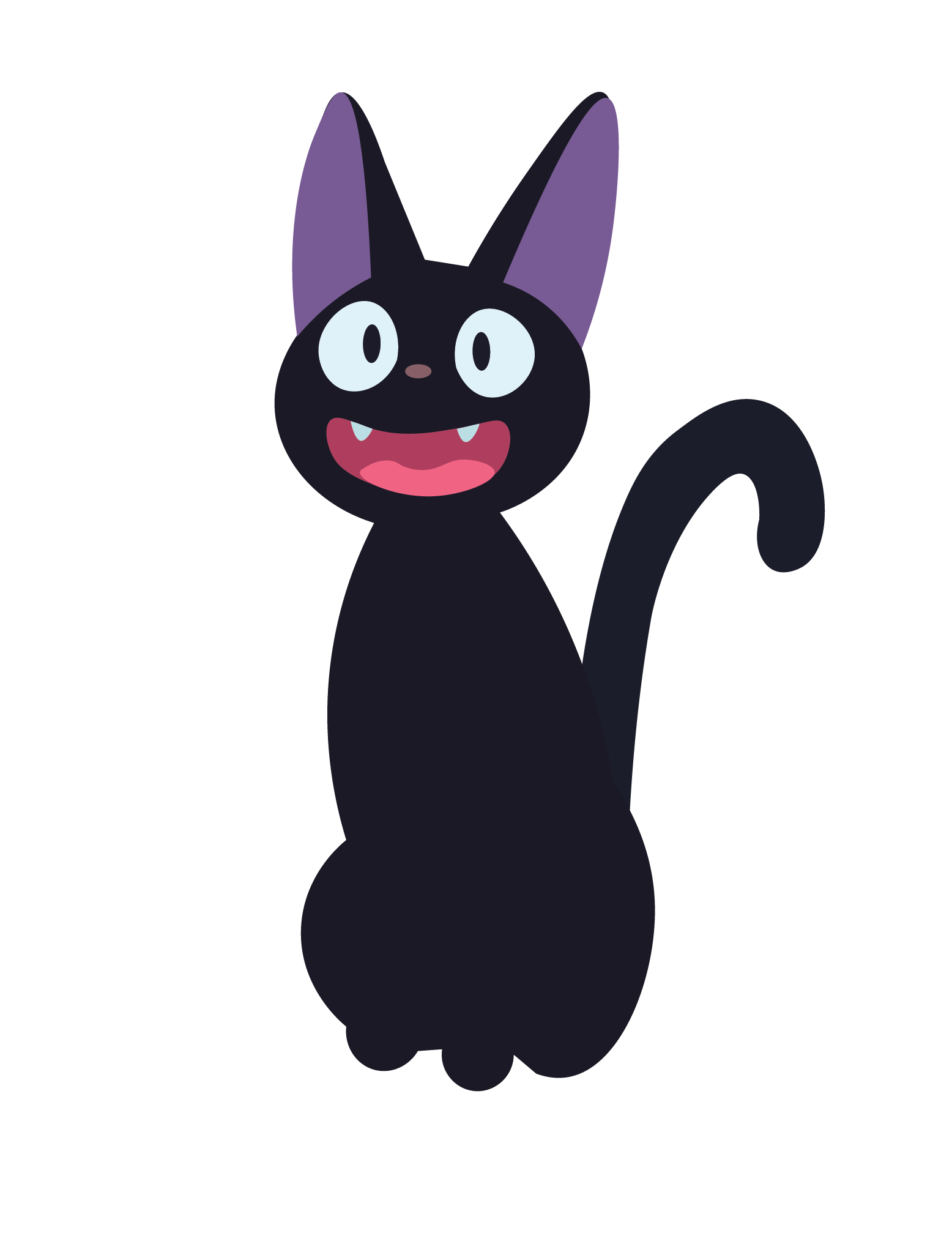How the Last Line of “Kiki’s Delivery Service” Changed Everything
A Tale of Localization
Graphics by Amy Luo
One of the earliest memories I have is watching the original Japanese version of Kiki’s Delivery Service in my house in Worcester, Massachusetts. This was a time when Studio Ghibli was starting to make a name of itself in the States, and many of Hayao Miyazaki’s movies were being released with new English dubs. Disney acquired the American redistribution rights to Studio Ghibli’s films, and released an English dub to Kiki 10 years after its initial release in 1998. The film tells of a young witch that moves to a large city to begin her training.
The voice cast was stacked, including the talents of a young Kirsten Dunst as Kiki, Debbie Reynolds, Tress MacNeille of Futurama fame and Phil Hartman as Kiki’s cat, Jiji, in one of his last roles. As Disney is wont to do, there were several changes made to the English dub, some for the worse. The most heinous, in my opinion, was the replacement of Yumi Matsutoya’s jaunty, 50’s-inspired song “rouge no dengon” for an original song in the film’s opening credits. I distinctly remember going to a friend’s house and watching the English version of Kiki and being taken aback at the song choice in the opening.
“Hartman’s Jiji is the largest divergence from the original Japanese version”
One highlight of the English version, I would say, was Phil Hartman as Jiji. Until I watched Kiki again a few weeks ago, I didn’t realize it was Hartman voicing Jiji. His voice in this dub is a far cry from his roles on Saturday Night Live or as Attorney Lionel Hutz on the Simpsons. There is no doubt in my mind that Hartman’s Jiji is the largest divergence from the original Japanese version. While Jiji has a more feminine voice in the Japanese original, Hartman’s voice is distinctly male. Japanese Jiji is more cautious and held back, English Jiji is cynical and wisecracking. In the context of both versions however, they work. Japanese Jiji is a reflection of Kiki’s insecurities as a young woman, and therefore matures with her as the film progresses. Hartman’s Jiji is more of a voice of reason to Kiki, a character that is more of a sidekick than a companion.
With the Japanese and original English versions, this fundamental change came with another: the film’s ending. In the final act of the film, Kiki finds herself losing her powers as a witch, unable to fly or talk to Jiji. After spending time with the people she has gotten to know in her travels, she feels renewed and returns to the city, just in time to save her friend Tombo, who is hanging from a crashing blimp.
The final scene of the movie finds Kiki reunited with Jiji. In the Japanese version, Jiji meows, suggesting that Kiki will never regain the ability to speak to him even if her magical powers have returned. In the original English dub however, Jiji speaks to Kiki again. This radically changes the way in which the film perceives both Jiji and a major theme of the film: coming of age.
“a lot of American media, especially animation, romanticizes childhood”
In 2010, Disney released an edited version of the English dub. Yumi Matsutoya’s rouge no dengon played in the opening credits, and all of Hartman’s ad libbed lines were cut. Hartman’s final spoken line was also replaced, with the same meow from the Japanese original. This cut is the one currently viewable on HBO Max, and to my mind, the most definitive one in English. Not only does it more reflect Miyazaki’s original intention, it also provides a more mature ending to a mature story. Make no mistake, the original English ending was no creative crime on behalf of Disney. Miyazaki and his team had ample input into the changes made in the dub.
However, there is no doubt that Kiki’s inability to speak to Jiji makes the ending ultimately bittersweet, much like how the process of aging actually is. I think a lot of American media, especially animation, romanticizes childhood. Fundamentally, the new cut of Kiki subverts the preconceived notion that childhood is an idealized time of innocence. Coming of age may require struggle, but in many respects, that struggle is worthwhile. Becoming an adult means asserting independence, developing a unique personality, and ultimately coming into your own.

